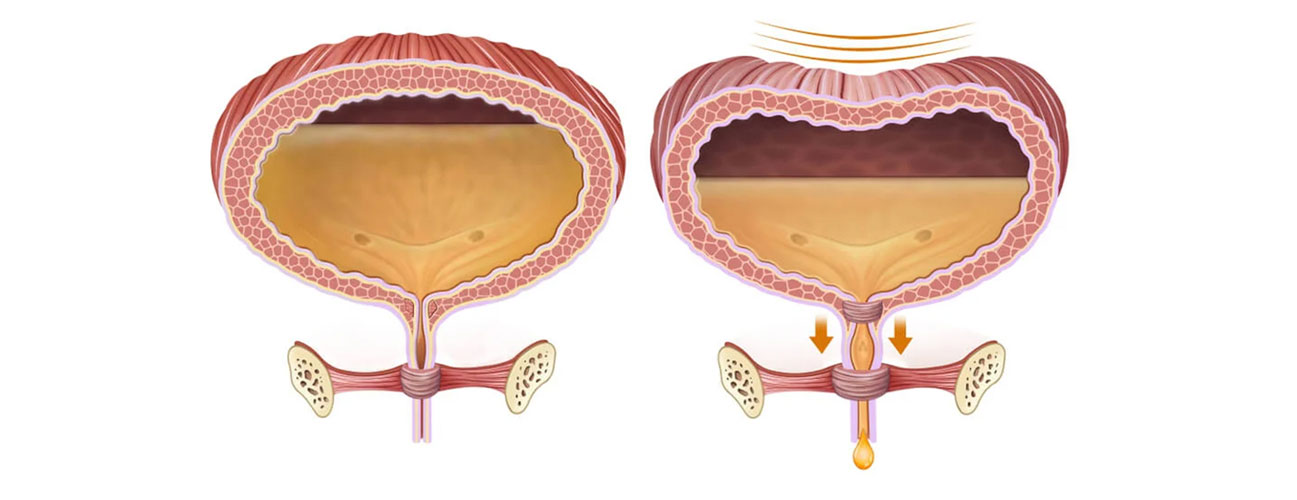Services
- Home/
- Neurogenic Bladder

Neurogenic Bladder, also known as Neurogenic Lower Urinary Tract Dysfunction, is when a person lacks bladder control due to brain, spinal cord or nerve problems. Several muscles and nerves must work together for your bladder to hold urine until you are ready to empty. Nerve messages go back and forth between the brain and the muscles that control when the bladder empties. If these nerves are harmed by illness or injury, the muscles may not be able to tighten or relax at the right time. In people with neurogenic bladder, the nerves and muscles do not work together well. The bladder may not fill or empty in the right way.
Millions of people have neurogenic bladder. This includes people with Multiple Sclerosis (MS), Parkinson’s disease and spina bifida. It also could include people who have had a stroke, spinal cord injury, major pelvic surgery, diabetes or other illnesses.
The urethra, bladder and kidneys are part of the urinary system. These are the organs that make, store, and pass urine. When the urinary system is working well, the kidneys make urine and move it into the bladder. The bladder is a balloon-shaped organ that serves as a storage unit for urine. It is held in place by pelvic muscles in the lower part of your belly. When the bladder empties, urine passes through the urethra, the tube that carries urine from your body.
When it is not full of urine, the bladder is relaxed. Nerve signals in your brain let you know that your bladder is getting full. Then you feel the need to urinate. When you have found a bathroom and are ready to urinate, the brain tells the bladder muscles to squeeze (or "contract"). This forces the urine out through your urethra. Your urethra has muscles called sphincters. They help keep the urethra closed so urine doesn't leak before you're ready to go to the bathroom
The symptoms of neurogenic bladder differ from person to person. Symptoms also depend on the type of nerve damage causing the problem. Symptoms may include: